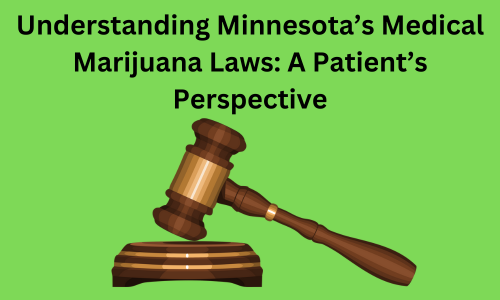Minnesota’s medical marijuana laws are among the most carefully regulated in the United States. This blog provides a thorough overview of the state’s medical marijuana laws, including patient eligibility, the registration process, legal guidelines, and practical advice for navigating the system.
Legislative Milestones
The Minnesota medical cannabis guidelines, signed into law in May 2014, marked the beginning of legal medical marijuana use in the state. This act established a framework for the production and distribution of medical cannabis, which became operational on July 1, 2015. The program is noted for its strict regulations and limited forms of cannabis available to patients.
Eligibility Criteria
To qualify for the medical marijuana program in Minnesota, patients must have one of the following medical conditions:
- Cancer (with associated severe pain, nausea, severe vomiting, or cachexia)
- Glaucoma
- HIV/AIDS
- Tourette syndrome
- Amyotrophic Lateral Sclerosis (ALS)
- Seizures, including epilepsy
- Severe and persistent muscle spasms, including multiple sclerosis (MS)
- Inflammatory bowel disease, including Crohn's disease
- Terminal illness with a life expectancy of less than one year
- Intractable pain
- Post-Traumatic Stress Disorder (PTSD)
- Autism spectrum disorders
- Obstructive sleep apnea
- Alzheimer's disease
Registration Process
Patients must obtain certification from a healthcare practitioner registered with the Minnesota Department of Health's Office of Medical Cannabis. This certification must confirm the patient has a qualifying condition. Following this, patients must register online with the Office of Medical Cannabis, providing necessary documentation and proof of residency. The registration fee varies, with a reduced fee available for those on government assistance programs.
Accessing Medical Cannabis
Medical cannabis in Minnesota is available through a limited number of Cannabis Patient Centers. These centers are managed by two licensed manufacturers: LeafLine Labs and Minnesota Medical Solutions. Patients can purchase medical cannabis in forms such as pills, oils, and vaporizer cartridges, but not in plant form for smoking. A consultation with a pharmacist at the dispensary is required to determine the appropriate product and dosage.
Legal Considerations
Medical cannabis in Minnesota is subject to several restrictions. Patients cannot grow their own cannabis and must use it in non-smokable forms. It is crucial for patients to keep their medical cannabis in its original packaging to avoid legal complications. Registered patients and caregivers are protected from criminal penalties as long as they comply with state regulations.
Employment and Medical Cannabis
Minnesota law offers certain protections for medical cannabis patients in the workplace. Employers cannot discriminate against employees solely based on their status as medical cannabis patients. However, this does not protect against impairment on the job or if cannabis use poses a safety risk. Patients should be aware of their rights and responsibilities regarding medical cannabis use in the workplace.
Future Developments
The medical marijuana program in Minnesota is continually evolving. There are ongoing discussions about expanding the list of qualifying conditions and improving patient access. Legislative changes may also address current restrictions, such as the prohibition of smokable forms of cannabis.
In summary, Minnesota’s medical marijuana laws aim to provide relief to patients with severe medical conditions through a tightly regulated system. Understanding the laws, registration process, and legal considerations can help patients navigate the medical marijuana program and benefit from its therapeutic potential.

